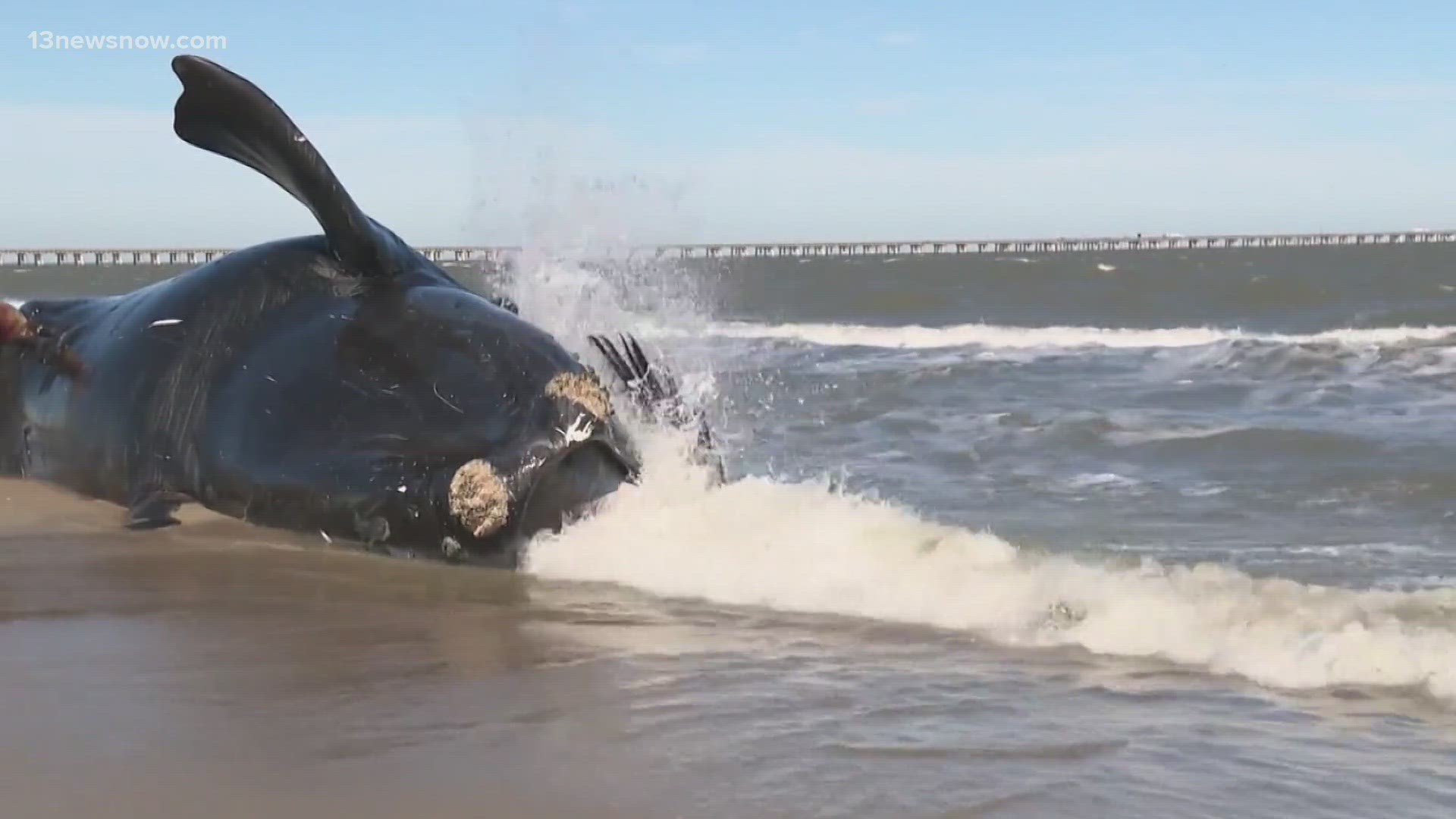VIRGINIA BEACH, Va. — Months after an endangered North Atlantic right whale was found dead on the shore of Virginia Beach -- likely the result of a boat strike -- an environmental organization says over the span of two years, nearly three-quarters of vessels near the Chesapeake Bay were speeding in restricted areas.
The 43-foot mammal was found along the shore of Aeries on the Bay Park back on February 13. After a multi-agency necropsy, the National Atmospheric and Oceanic Administration (NOAA) said the whale suffered a catastrophic blunt force traumatic injury consistent with a vessel strike.
In a new report from environmental advocacy group Oceana, that vessel was likely speeding.
"It’s frustrating when we see an avoidable whale death," said Gib Brogan, fisheries campaign director for Oceana.
He said from 2020 to 2022, more than 70% of vessels driving by the Chesapeake Bay entrance were speeding in restricted areas.
"What we found was very low levels of compliance. That more than 80% percent of the boats were not complying with the speed limits up and down the east coast," he said. "Far too many boats are going far too fast in these speed zones."
Brogan said cargo ships make up a big portion of that percentage.
"This shows that the enforcement of the speed zones is not effective, that we're not slowing down and giving the right whales the protection that they need. And this is likely jeopardizing the future of this species."
After the North Atlantic right whale washed up in Virginia Beach, Oceana looked at boat traffic in the days preceding its death.
"We found that there were hundreds of boats speeding through that speed zone when we knew that there were seven right whales confirmed to be swimming in that area," said Brogan.
He said speeding regulations have not been updated since 2008 and now that the right whale population is down to just 365 worldwide, that needs to change.
"The latest science says that if boats slowed down below 10 knots, which is about 11 mph, we can reduce the risk that right whales will be killed by a boat strike by more than 80%."
Brogan said last year through NOAA, the U.S. government proposed to update current speed zones from Florida to New England. He said they are considering the public comment now.
"Those improvements will expand the seasonal speed zones, will make all speed zones mandatory, and will include boats down to 35 feet in length."
NOAA’s proposed rule would expand on existing requirements by reducing the maximum speed limit for commercial and recreational boats of 35 feet or larger to 10 knots — or roughly 11 mph — in designated zones.
The restrictions, which currently apply to boats larger than 65 feet, would be in effect for up to seven months per year in some places. It's also important to note nearly all of the slow zones would have little to no impact between Memorial Day and Labor Day, when most of the whales are in Canada.
Opponents of NOAA’s proposal for new speed regulations argue it could hurt the recreational boating and fishing community, which has an annual economic impact of $230 billion.
RELATED: Georgia congressman wants to block US agency from slowing boats to protect endangered whales
That 43-foot right whale in Virginia Beach wasn’t the only whale to die on our shores this year. In January, an entangled 4-year-old North Atlantic right whale was found near Rodanthe.
Two humpback whales were also found earlier this year, one near First Landing State Park in Virginia Beach.

